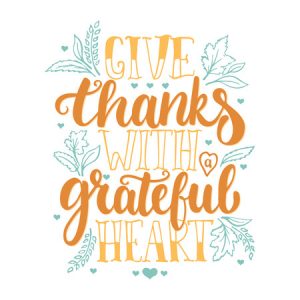Are you living in an emotionally toxic relationship? Women often know there is something wrong in their relationship because of the fighting and the terrible things that are said, but they want to believe the best about their partners. They don’t want to believe that their partner is actually emotionally abusive. How can they know for sure? Emotional Abuse seems so ambiguous, that many victims feel silly even bringing it up. Since emotional abuse doesn’t leave physical wounds or scars, it is sometimes ignored. But did you know that emotional abuse can be just as damaging as physical abuse?

Many couples will have infrequent arguments where both say things they regret. Many couples get into dysfunctional habits and cycles that cause problems in the long run. However, emotional abuse is different. Emotional abuse is pervasive, repeated and a perpetual relational style of keeping a one-up/ one-down status in the relationship. The following are signs of Emotional Abuse.
16 Signs of Emotional Abuse
- Blame: They tend to blame you for their own mistakes. Even if you had nothing to do with it or weren’t even around, somehow it becomes your fault.
- Fights Are Huge: Every couple has arguments, and may even say hurtful things they regret later. However, emotionally abusive partners escalate arguments into cutting, explosive fights where he emerges from the wreckage without a care.
- Name Calling: Cruel put downs like “Stupid Ass, Crazy Bitch, Jesus Freak” and others I won’t even write, are used to make you feel stupid, crazy, and ridiculous. You may be called these names in front of others, your kids or when you are all alone.
- Yelling, Cussing, Vulgarity: Using volume, profanity and vulgar slurs takes what could be a normal activity or conflict, and makes it scary, threatening and mean-spirited.
- Excessive Teasing: Every relationship can endure, and may even be enhanced by some good natured teasing, especially when both can laugh at themselves easily. However, teasing becomes emotionally abusive when it crosses a line from good natured to cruel and excessive. Teasing can be used to control, threaten and over-power.
- Threatening: Feedback, suggestions, and constructive criticism are met quickly with ultimatums, threats and terrorizing antics. Threats are usually carefully crafted weapons aimed right where they will hurt you most.
- Badgering: once you’ve expressed your boundaries, your partner aggressively pesters you in order to get you to change your mind. This tactic is used to wear you down until you give in.
- Punishing Silence: a partner who habitually withdraws from the relationship in order to prove a point or get back at you is emotionally abusive.
- Constant Criticism or Judgment: Emotionally abusive people use criticism and judgment to keep you in “your place” or keep you feeling bad about yourself so you won’t assert your need for better treatment.
- Disregard: Emotionally Abusive people will disregard your opinions, needs, or ideas. You may feel like you are not seen as a whole and equal person in the relationship because your partner minimizes you.
- Gas-Lighting: Accuse you of being crazy or too sensitive. When you complain about this treatment, you are disregarded. You are lead to believe that you are the problem, not the emotional abuse.
- Control of Finances: It’s normal for partners to have different roles in the relationship, like for one to handle the finances and the other to handle house maintenance. But when finances are controlled or kept from the other partner, the imbalance of power is abusive and wrong.
- Contempt: Contemptuous body language, facial expression, implying disgust toward you. This may seem very covert, and maybe even small. However, its impact damages self esteem, feelings of safety, and trust.
- Ignoring Boundaries: Repeated disregard for your boundaries, limits, space or requests. We only truly know how someone will respect us once we say no. If your partner repeatedly dismisses your expressed needs or requests, this is a violation of your person.
- The Pot Calling the Kettle Black: This sneaky tactic is when your partner accuses you of the thing he/she is really guilty of. For example, he/she will give examples of you being emotionally abusive in attempt at convincing you that you are the problem. Psychologists call this projection.
- Excessive Anger: Anger may be loud and overt, or silent and seething. Their anger is used to intimidate and control. You may feel yourself avoiding difficult conversations, walking on eggshells, and trying not to upset your partner.

If you are finding yourself sadly nodding your head as you read this list, you are not alone. You may be coming to the realization that your relationship is not only unhappy, but down right abusive. Emotional abuse is important to identify and stop. Emotional abuse may seem easier to overlook, than to confront. You probably intuitively know that the abuse may get worse after confronting it. This seems risky and scary. But the abuse doesn’t get better or go away over time. Without intervention, emotional abuse only gets more severe and more frequent. Taking steps to be safe can be a long process, but worth it for you, your children and the people around you. For more information on setting boundaries and staying safe, click here.










